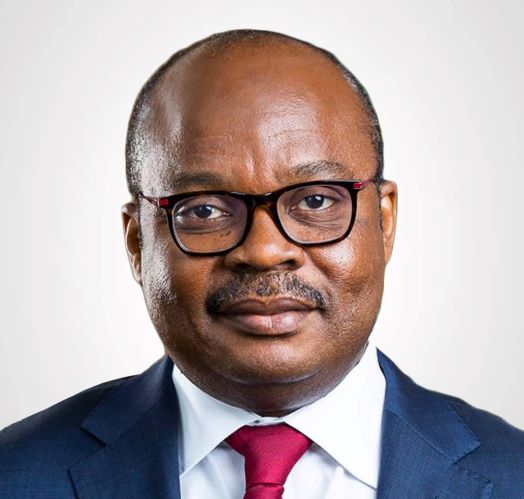The size of Ghana Financial Stability Fund (GFSF) being established by government with the support of development partners is worth GH₵15 billion.
Encouraging full participation of financial institutions
This is to support and encourage full participation of financial institutions in the voluntary Debt Exchange programme.
GH₵137bn notes and bonds
The Fund will provide liquidity to financial institutions that participate fully in the Debt Exchange involving GH₵137 billion notes and bonds including E.S.L.A. and Daakye bonds, for a package of New Bonds to be issued.
T-Bills, notes and bonds held by individuals exempted
The Exchange excludes Treasury Bills in totality, and notes and bonds held by individuals.
Institutions to be supported
All financial institutions (banks, SDIs, pension schemes, collective investment schemes, fund managers, broker/dealers, insurance firms) that fully participate in the Debt Exchange can access the GFSF for augmented liquidity support, with effect from the date of completion of the Debt Exchange.
BoG to manage Ghana Financial Stability Fund
A statement issued by the Financial Stability Council of the Bank of Ghana (BoG) said the Fund will be managed by BoG under unique operational guidelines being developed by the Financial Stability Council.
Financial Stability Council to provide advice and oversight
The Financial Stability Council will provide ongoing advice and oversight for the use of the GFSF.
Regulators in discussions with external auditors of financial institutions
The statement noted that regulators are already in discussions with external auditors of financial institutions and will provide guidance to ensure a standardized approach to the accounting treatment applied to the Debt Exchange.
Stress tests conducted by relevant financial sector
According to the Council, stress tests have been conducted by the relevant financial sector regulators to estimate the potential impact of the Debt Exchange for banks, specialised deposit-taking institutions (SDIs), insurance firms, asset managers, collective investment schemes, pension fund trustees, and regulated pension schemes, that could result from their participation in the debt exchange.
Regulatory and supervisory tools to be deployed
To help manage the potential impacts of the Debt Exchange on the financial sector, the statement said financial sector regulators will deploy all regulatory and supervisory tools to mitigate risks to financial stability.
Regulators to assess impacts on regular basis
It added that regulators will assess impacts on a regular basis, and quickly address evolving risks in order to safeguard financial stability.
Regulatory capital and liquidity requirements to be reduced temporarily
The Financial Stability Council noted that financial sector regulators will temporarily reduce regulatory capital and liquidity requirements for regulated firms and schemes that voluntarily participate in the debt operation.
Regulators to suspend or delay any new rules
In addition, it said regulators will also suspend or delay any new rules that will have an adverse impact on liquidity or solvency while each regulator will communicate more specific reliefs to its regulated firms/schemes in due course.
In keeping with its mandate, the Financial Stability Council pledged to continue to closely monitor the impacts of the Debt Exchange on financial institutions and on the financial system as a whole, as well as the effectiveness of the measures outlined above.
“These measures will be reviewed continuously and recalibrated as needed to ensure maximum effectiveness to safeguard the stability of our financial system and the protection of deposits, pensions, policy holders’ funds, and investor funds/assets,” the statement.
GH¢467.3bn public debt
The Debt Exchange expected to reduce the public debt which stood at GH¢467.3 billion (GH¢467,371.31 million) or the equivalent of $48.8 billion ($48,871.34 million) as at the end of September 2022.
The latest debt sustainability analysis had demonstrated that Ghana is faced with a significant financing gap over the coming years revealing that public debt is unsustainable.
When successful, the Debt Exchange will also open up financing streams and provide the needed balance of payment support from the International Monetary Fund (IMF).
4 legged approach
The debt restructuring which is expected to deal with high interest payments on the public debt is part of a four legged approach adopted by the government in 2023 budget aimed at alleviating the pressures on the national budget and restoring debt sustainability.
4 New Ghana bonds
Domestic debt operation involves an exchange for new Ghana bonds with a coupon that steps up to 10% as soon as 2025 (with a first interest payment in 2024) and longer average maturity.
Maturing dates for the new bonds
Existing domestic bonds as of December 1 2022 will be exchanged for a set of four new bonds maturing in 2027, 2029, 2032 and 2037.
Predetermined allocation ratios
Predetermined allocation ratios are 17% for the short bonds, 17% for the intermediate bond, 25% for the medium-term bond and 41% for the long-term bond.
Annual coupon rates
The annual coupon rates on all of these new bonds will be set at 0% in 2023, 5% in 2024 and 10% from 2025 until maturity. Coupon payments will be semi-annual.
Eligible holders, who deliver valid offers at or prior to the expiration date that are accepted by the country, will receive at the settlement date in exchange for their eligible bonds accepted, the same aggregate principal amount distributed across new bonds due dates.
Offers end on December 19
Offers may only be submitted starting from December 5, 2022, and ending at 4:00 p.m. (Greenwich Mean Time (GMT)) on December 19, 2022.
Sole discretion to extend expiration date
However, government may at its sole discretion extend the expiration date, including for one or more series of eligible bonds.
Only registered holders eligible
The invitation is available only to registered holders of eligible bonds that are not individual investors or that are otherwise authorised by the Government of Ghana, in its sole discretion, to participate in the Invitation.
Government said eligible holders tendering their eligible bonds pursuant to the invitation will receive new bonds of the country on the terms and subject to the conditions described in the Exchange Memorandum.
All offers irrevocable
All offers to exchange eligible bonds made by eligible holders are irrevocable and by tendering their eligible bonds, eligible holders represented and warrant.
Such eligible bonds constitute all the eligible bonds owned by them and consent to the blocking by the Central Securities Depository of any attempt to transfer them prior to the settlement date or the termination of the invitation.
- Friday May 3 2024 Newspaper Headlines - 3 May 2024
- Monday April 29 2024 Newspaper Headlines - 29 April 2024
- Friday April 26 2024 Newspaper Headlines - 26 April 2024




